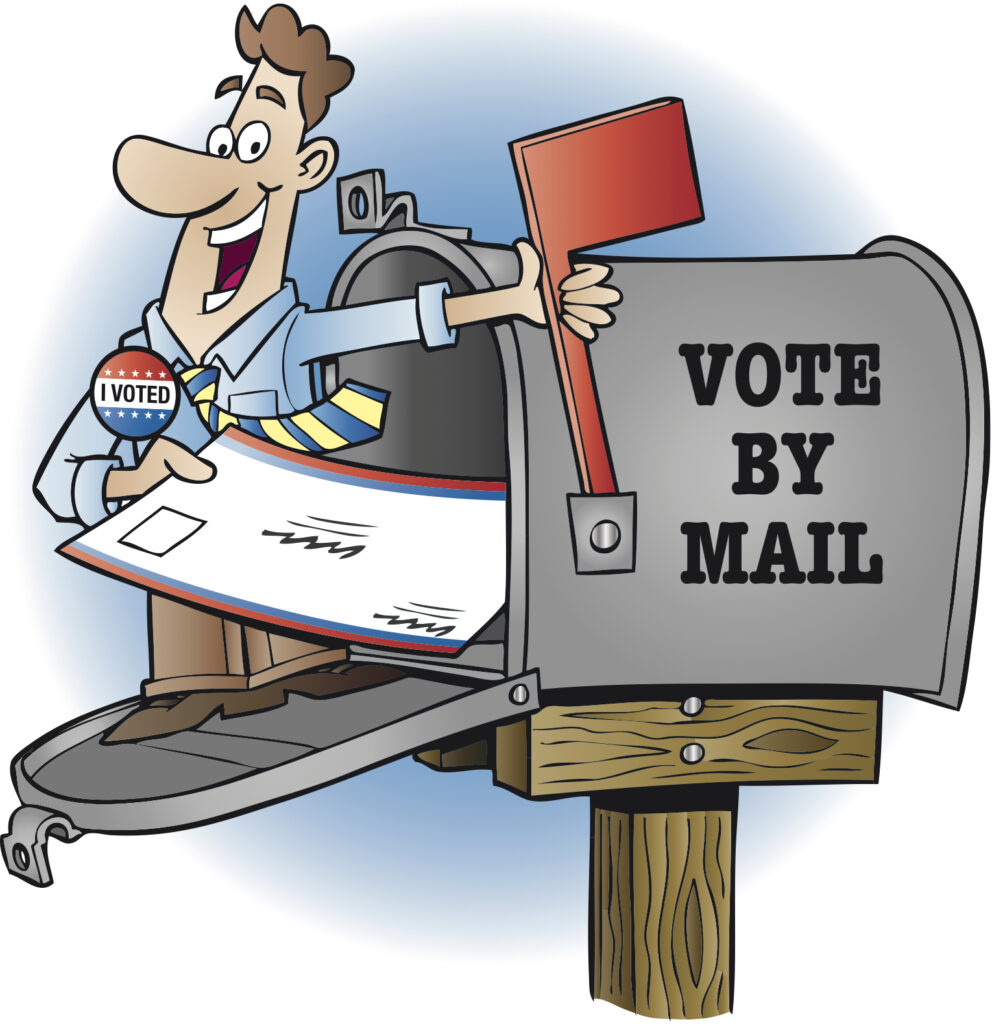Commentary
A national telephone and online survey by Rasmussen Reports and The Heartland Institute found that 28 percent of likely voters would engage in at least one kind of illegal voting practice if that was “the only way to stop” an opposing candidate from winning, while 72 percent say they would not cheat.
“Doing the math, that means that if voter turnout remains similar to 2020, nearly 45 million ballots may be fraudulently cast if they are not prevented,” said Jack McPherrin, Research Editor and Socialism Research Center at The Heartland Institute.
More than 20 percent of voters who used mail-in ballots in 2020 admit they participated in at least one form of election fraud.
Eighteen percent of all likely voters said that if their spouse or another trusted family member gave them permission to fill out and sign their mail-in ballot, allowing them to use their ballot to vote for a candidate of their choice, they would.
Similarly, 17 percent said they would fill out and sign a mail-in ballot of a co-worker or friendly acquaintance, and 14 percent would do so on behalf of a close friend.
Shockingly, nine percent said that if given the opportunity, they would alter the candidate selections made in a mail-in ballot belonging to a friend or family member without their knowledge, and 11 percent said they would destroy a ballot of a friend or family member without their knowledge.
Thinking about the movement of people from New York to Florida and California to Arizona and Texas, the survey revealed that 10 percent would vote in two different states to help their candidate win.
While McPherrin said, “The results of this poll will hopefully galvanize state policymakers to craft legislation designed to ensure election integrity by vastly restricting mail-in voting,” his colleague, Justin Haskins, found it “deeply troubling that state lawmakers have not put election integrity policies in place to stop cheating in 2024 and beyond”with millions of voters – Democrat and Republican – willing to vote illegally, even to commit serious crimes.
Though Trump can be expected to continue to voice his concern with mail-in voting, the RNC has conceded that early voting and mail-in ballots are the future of voting in the U.S.
“Programs at the RNC focusing on early voting, ballot harvesting where legal, absentee ballot and mail-in program will continue to be enhanced,” wrote RNC chair Michael Whatley in a memo to members.
Nationally, Republicans think that Trump’s concerns about mail-in voting are valid, but they will continue to be encouraged to vote in different ways.
Kramerontheright has long advocated for in-person voting on Election Day with a proper ID, except under extenuating circumstances, when an absentee ballot could be requested. It’s a lost cause.
Research
Looking back in my files on the subject of mail-in voting, I found two articles published by the New York Times and another by NPR.
Interestingly, in a September 9, 2020 article in the Times, two lines seemed to be in conflict. The subhead read, “the president’s allegations of widespread fraud are unfounded,” however, in the story there was this: “Experts say that the mail-voting system is more vulnerable to fraud than voting in person, but that both were limited to isolated cases.”
In a Times piece by Linda Qiu, published on January 5, 2021, she criticized Trump for discouraging mail-in ballots, citing “a scam” or rife with “fraud,” which she said “are not true.”
Yet, she cited several examples of fraud in Michigan, North Carolina, and New Jersey. Roughly 500 voters in North Carolina received two ballots. In New Jersey, 20 percent of the ballots were defective.
Her contention that “There have been numerous studies and government reviews finding voter fraud extremely rare in all forms, including mail-in voting.” Though written three years ago, it certainly doesn’t hold up with the findings of the Rasmussen/Heartland survey revealed earlier, with significant percentages of admitted fraud.
An August 11, 2020 article, published by NPR openly suggested that “if you’re in a place where lots of people historically haven’t voted by mail, think about helping a friend or offering assistance. You could be a resource to people who either don’t know what to do or are intimidated by it.”
Places like an assisted-living facilities, hospitals or even union halls are known to be targeted by vote harvesters.
I saved an article in my stack of stuff that I thought I might want to refer to some day. In it, Newsweek, reported that a court in Pennsylvania had issued a ruling about mail-in ballots that could lead to a major case in the U.S. Supreme Court and have an impact on the 2024 presidential election.
A three-judge panel of the U. S. Court of Appeals for the Third Circuit ruled by a vote of 2 to 1 that mail-in ballots without a handwritten date or with an incorrect date should not be counted.
Pennsylvania state law requires a handwritten date on the envelopes containing mail-in ballots, but the date is not used to determine voter eligibility. In the past, wrongly dated and undated ballots were counted, which explains how charges of fraud surface.
”Pennsylvanians deserve to feel confident in the security of their mail ballots,” commented RNC Chair Whatley, while rejecting unlawful left-wing attempts to count undated or incorrectly dated mail ballots.
Undoubtedly, claims of fraud will arise in the 2024 election.
May God continue to bless the United States of America.






